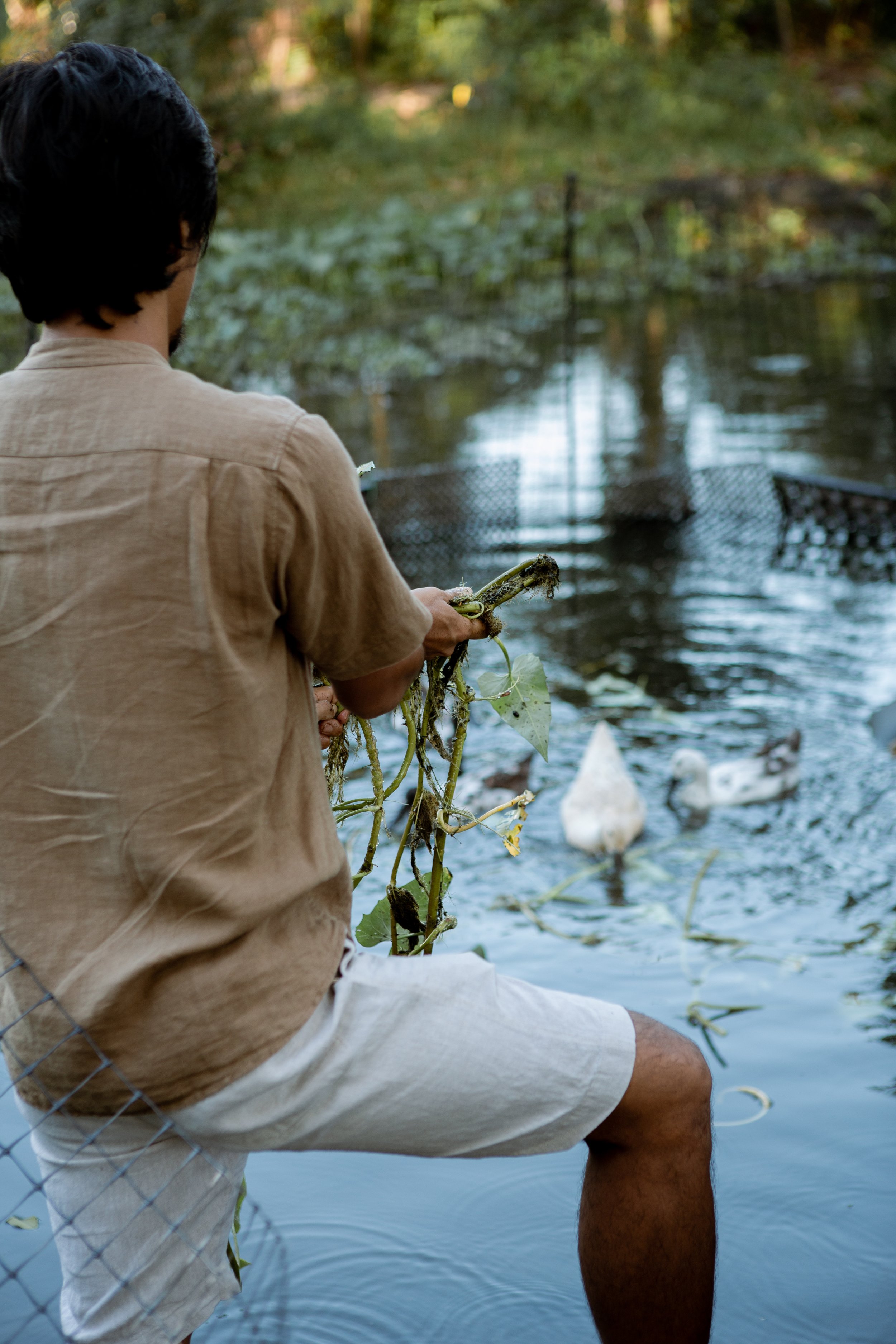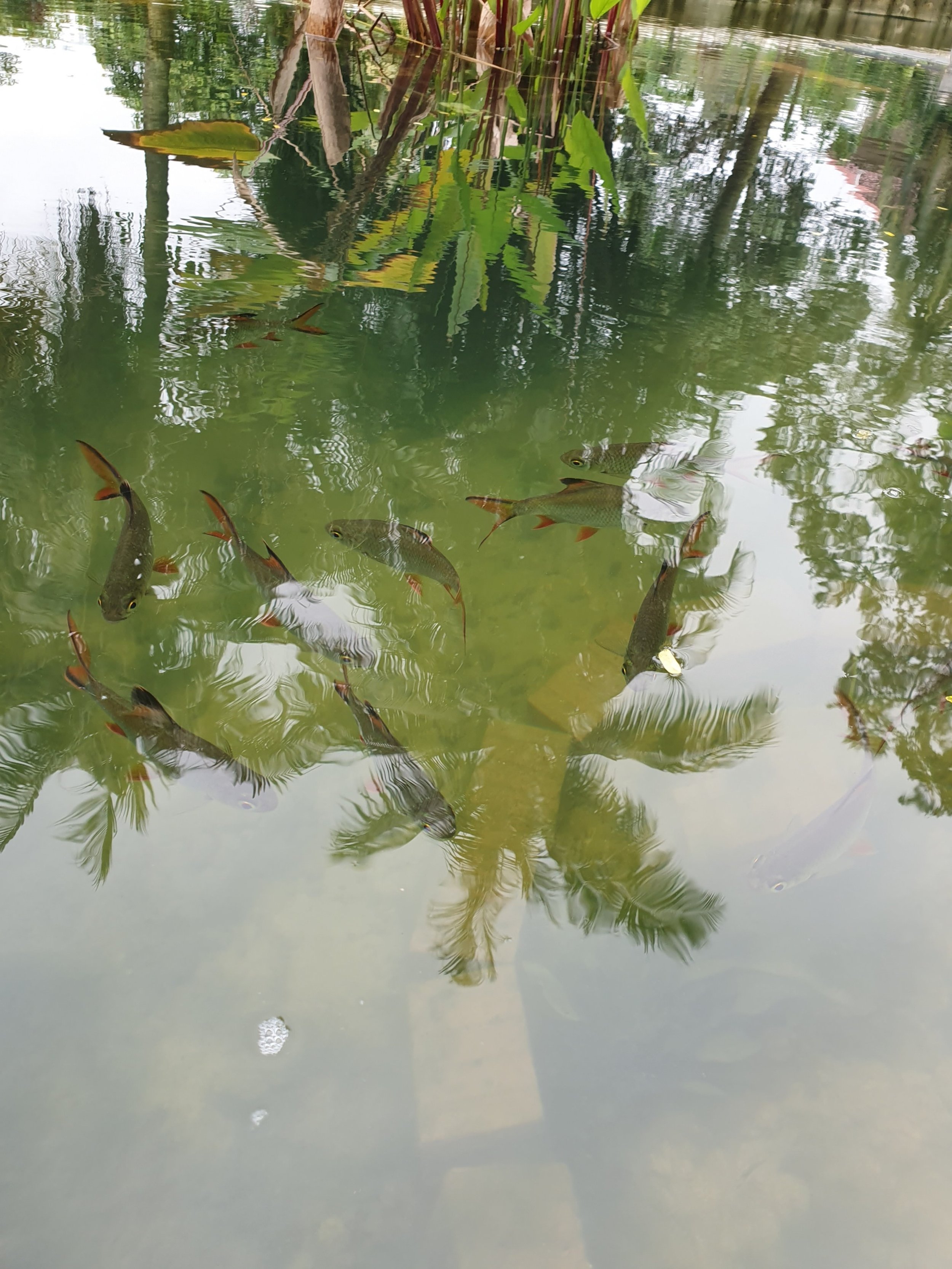
Yarwood Homestead functions as a tropical permaculture research site that was built together with the local permaculture community. We conceptualised this space together with our research partners, Abundant Cities, to transform the house, underutilised lawn and swimming pool into a self-sufficient tropical urban homestead featuring a market garden flanked by chicken tunnels, a biologically-filtered natural swimming pool, a duck pond and a deep-litter chicken composting system.
Yarwood Homestead
Poultry Integration
Ducks and chickens are important supportive elements that were introduced to the homestead to re-envision typical aquaculture and agricultural models. They serve as natural pest and weed control in the market gardens and food forest through controlled grazing areas.
Integrating livestock is also highly beneficial for nutrient-cycling on site - the poultry consume leftover food and unwanted plant matter, which in the case of the duck pond, transforms into manure-rich water that is used to water the market garden, or the creation of rich compost in the deep-litter chicken composting system. This ecological recycling ensures that nothing is wasted and all nutrients are returned to the soil to produce more food.





Natural Swimming Pool
An former chlorine swimming pool was converted into a natural pond that is regularly tested for water quality. The pool was retrofitted with drainage cells to create a platform in the centre for emergent plants and hiding places for fish; a corner of the pool was filled with substrate bordered with rocks at different levels - all of which to create niches for different types of aquatic life to establish. This large water body is home to native and bio-regional fish like the economically extinct tinfoil barb and three-spot gourami, and is biologically cleaned by many types of floating, submerged and emergent aquatic plants as well as snails and Siamese Algae Eaters. The pond functions as natural mosquito control for the site with its fish, and also by attracting dragonflies (even endangered species) that can consume up to 100 mosquitoes a day.
Tropical Market Garden
A market garden is a small-scale farm that prioritises growing a diversity of crops, unlike a monoculture of one crop. Tropical market gardens present unique challenges and opportunities, that while allowing for crops to grow all-year round, also bring greater pest pressure and quicker breakdown of organic material. We have been farming in the tropics for years with heirloom seeds that we’ve saved, and a selection of native and localised crops. Over time we have refined our methods combining concepts of no-till farming with slash and mulch biomass rows, and also introduced chicken tunnels here for weed-control and creating on-site fertility. Our first priority for this site was to put in as much organic material in the lifeless and compact clay soil to kickstart soil biology - we did this by first removing 60cm of clay soil and mixing in compost and mulch, and planted a round of green manure consisting of leguminous crops and fast-growing greens which we later chopped and dropped in situ.
Community Collaborations
Yarwood Homestead was built by, and in consultation with, the larger permaculture community in Singapore. Various practioners such as consultant Jeremy Beckman, biodiversity and dragonfly expert Tang Hung Bun, community composter and educator Chingwei Chen have all shared their expertise in conceptualising and building the space. Yarwood Homestead is also home to rescued bees, courtesy of Clarence Chua of The Sundowner. The speed of which the project materialised is also largely thanks to a group of dedicated volunteers who have contributed their time and muscle into creating a space that was built almost entirely without any machinery over the course of 1 year. Yarwood Homestead is now operated entirely by Abundant Cities and continues to host weekly volunteer work parties.
Pictures below contributed by Tang Hung Bun.












